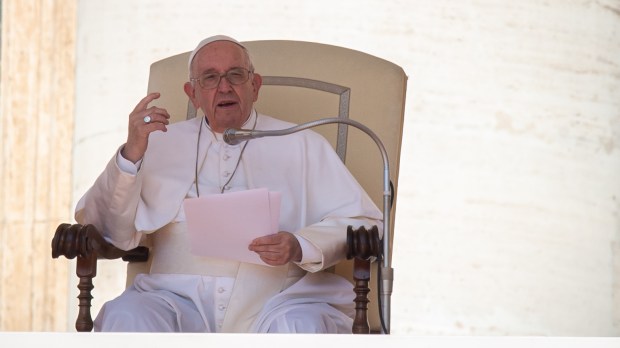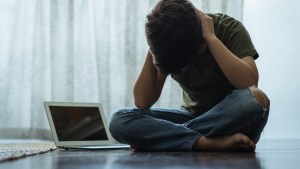While Pope Francis is known for his concern of the environment, he was clear that having kids is not “a lack of responsibility.”
“The concept of ‘ecological footprint’ cannot be applied to children” who are, on the contrary, “an indispensable resource for the future,” he said, quoting a declaration from the organization he was addressing.
Instead, consumerism and individualism must be addressed, looking to families as the best example of resource optimization.
This is a theme he addressed in his encyclical Laudato Si’ (2015), and is also in accord with his various statements on the dangers, economic and otherwise, of the “demographic winter,” with many countries not attaining a replacement level birthrate.
Once again, the Pontiff expressed concern about the low birth rate in Europe, especially in Italy. This demographic winter is “serious … very serious,” he lamented. A Europe that is aging, that does not generate, is a Europe that cannot afford to talk about sustainable development and that is struggling more and more to show solidarity.
Threats to the family
This wasn’t the only issue the Pope mentioned in his address to members of the Federation of Catholic Family Associations in Europe (FAFCE), on the occasion of the 25th anniversary of their foundation, on June 10, 2022.
The Pope also denounced two threats to the family: pornography and surrogacy.
The Holy Father told his guests, among whom were families with infants, that surrogacy is inhumane and an exploitation of women, “almost always poor women.” In this “ever more widespread practice,” he lamented, “children are treated as commodities.”
The Bishop of Rome also spoke out against pornography, a “permanent attack on the dignity of men and women,” and a “threat to public health.”
He called on authorities to protect children from this “scourge” and to heal the wounds of those addicted to it.
The natural place for new life
In terms of solidarity, the pontiff also paid tribute to the families and networks of families that have been “on the front line” in welcoming refugees from the Ukrainian war, especially in Lithuania, Poland, and Hungary.
Finally, the head of the Catholic Church hoped that “the family based on marriage” would be at the center of societies, not “because it would be an ideal and perfect entity” or “an ideological model,” but because it represents “the natural place of first relationships and of giving life.”
Family policies, he warned, “must not be seen as instruments of state power,” but must be based “first and foremost on the interests of families themselves.”
Families need other families
The Pope also spoke about how important it is for families to have support.
Renewing my exhortation to you five years ago (June 1, 2017), I encourage you to continue your work to foster the establishment and consolidation of family networks. This is a valuable service, because there is a need for places, meetings, and communities where couples and families feel welcomed, accompanied, never alone. There is an urgent need for local churches, in Europe and beyond, to open up to the action of lay people and families accompanying families.
The Pope said that perhaps the biggest challenge facing families is, in fact, loneliness.
While many families have rediscovered themselves as domestic churches, it is also true that too many families have experienced loneliness, and their relationship with the Sacraments has often become merely virtual. Family networks are an antidote to loneliness. Indeed, they are, by their very nature, called to leave no one behind, in communion with pastors and local churches.



